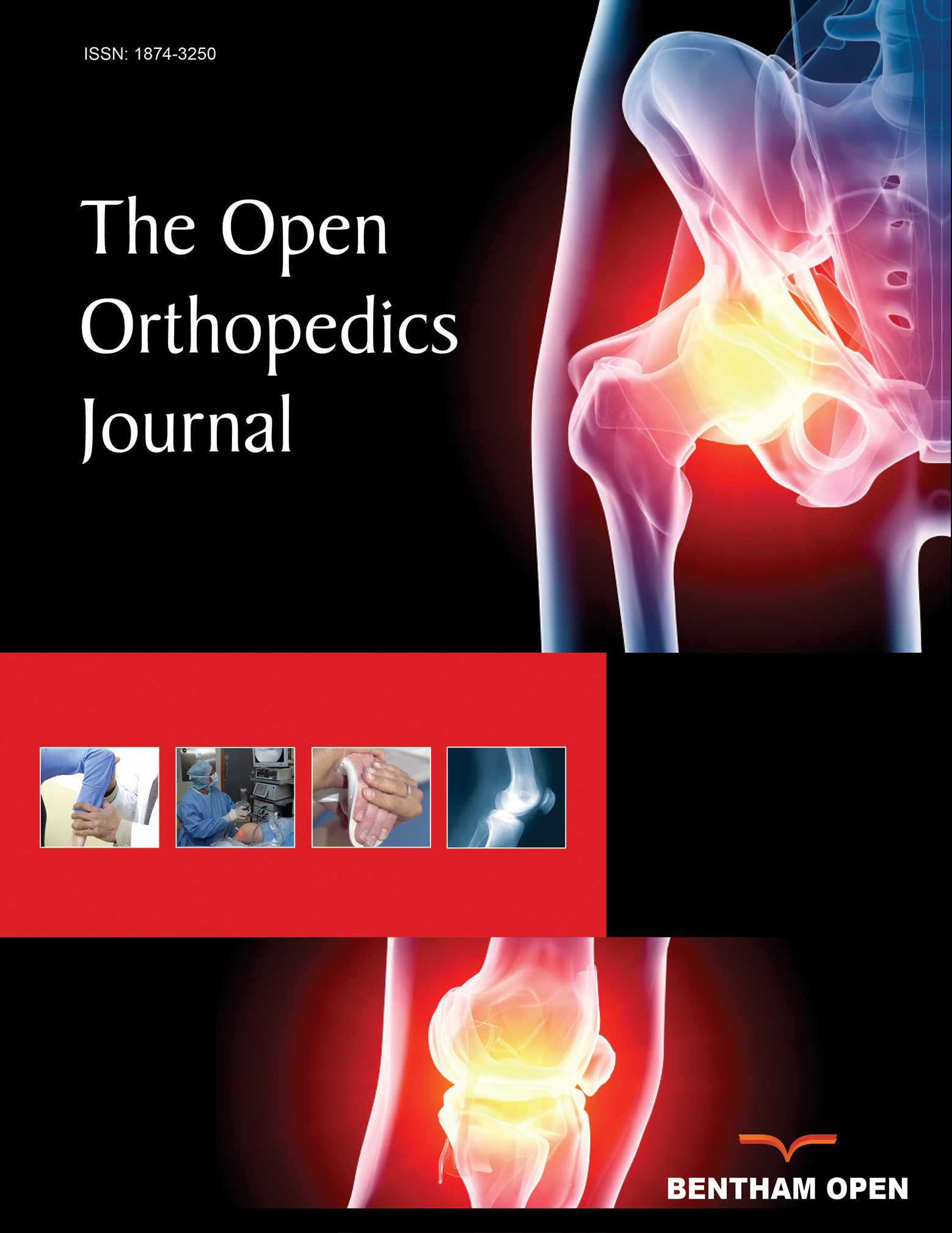All published articles of this journal are available on ScienceDirect.
Tranexamic Acid Reduces Blood Loss and Transfusion in Patients Undergoing Total Knee Arthroplasty without Tourniquet: A Prospective Randomized Controlled Trial
Abstract
Introduction :
Blood loss during and after total knee arthroplasty (TKA) can lead to substantial morbidity and the need for blood transfusions. There are several methods to minimize blood loss and to decrease transfusion rates in patients undergoing TKA. Tranexamic acid is an antifibrinolytic agent with known efficacy for achieving these goals. Currently, many surgeons are performing TKA without the use of tourniquet. Consequently, the aim of the study is to evaluate whether tranexamic acid reduces blood loss during and after TKA without the adjunctive use of above-the-knee tourniquet.
Methods :
We performed a prospective randomized controlled trial (1:1 fashion) on the use of tranexamic acid versus placebo in 50 patients undergoing TKA (without tourniquet). The treatment group received two (preoperative and postoperative) 15 mg/kg doses. The primary endpoint was blood transfusion rate. We collected data about demographic and procedural characteristics, hemoglobin and hematocrit values, drain blood loss at 24 hours as well as adverse events.
Results :
There were no transfusions in the treatment group, whereas 32% of the control group required transfusion (p<0.01). The treatment group had higher hematocrit and hemoglobin levels at 24, 48 and 72 hours after surgery (all p<0.01) and lower drain loss at 24hours (363.4±141 vs 626±260ml, p=<0,001). There were no in-hospital or six-month thromboembolic complications.
Discussion :
A double-dose of tranexamic acid was safe and effective, reducing blood loss and preventing the need of blood transfusion in patients undergoing TKA without above-the-need tourniquet.


